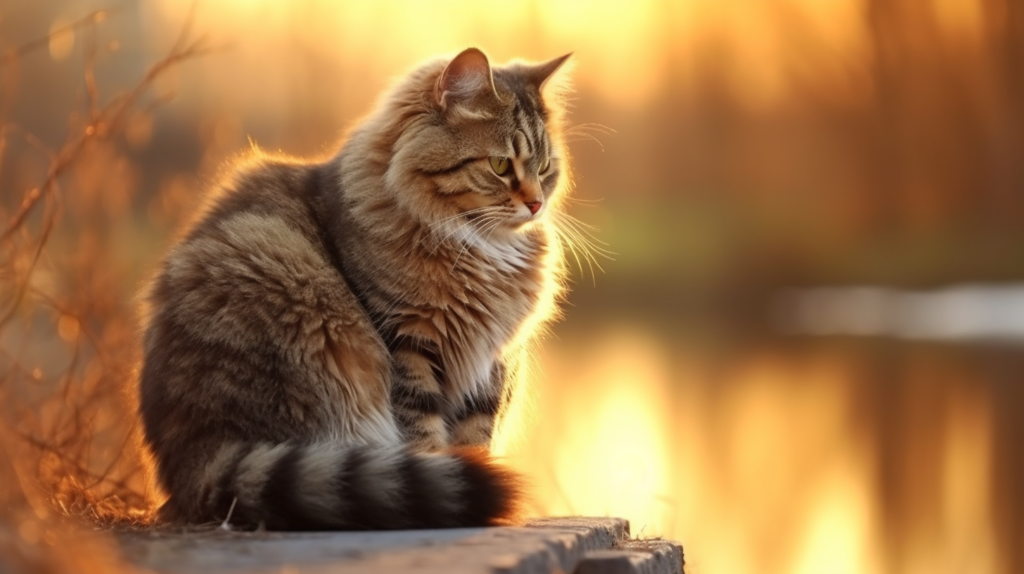According to experts, cats known for being independent can suffer from separation anxiety if left alone without any human interaction for an extended period. Separation anxiety in cats is a behavioural disorder that distresses them when separated from their owners or left alone; this article details its causes, symptoms, diagnosis and treatment in full detail.
Definition of Separation Anxiety in Cats
Separation anxiety in cats is characterized by excessive meowing, destructive behaviour, inappropriate urination or defecation and other signs of distress when alone or separated from its owner. Cats who exhibit separation anxiety may also display aggressive or defensive tendencies, as well as depression and appetite loss.
How Often Cats Have Separation Anxiety
While separation anxiety is more commonly associated with dogs, cats can also experience this condition. Experts estimate that up to 13% of cats may experience some form of separation anxiety, but researchers have not studied the prevalence of separation anxiety in cats extensively.
How to Recognize Your Cat Has Separation Anxiety

The signs and symptoms of cat separation anxiety may vary from one cat to another, but the most common signs include:
- Excessive meowing or crying
- Destructive behaviour, such as scratching furniture or doors
- Inappropriate urination or defecation
- Pacing or restlessness
- Hiding or excessive grooming
- Loss of appetite
- Aggression towards people or other animals
Causes of Cat Separation Anxiety

The causes of separation anxiety can vary, but some common causes include:
Changes in Environment or Routine
It’s essential to keep our furry feline friends in mind regarding their daily routine. Their disrupted pattern or relocation to a new home can quite upset them. Separation phobia in cats can challenge both the cat and its owner. Creating a comfortable and secure environment for our beloved cats is crucial. By understanding their habits and needs, we can ensure they feel at home and content.
Lack of Socialization
Cats not adequately socialized may be more prone to separation anxiety. Socialization is exposing cats to different people, animals, and environments to help them feel comfortable in new situations.
Trauma or Abuse
Cats that have experienced trauma or abuse may be more prone to separation anxiety. Cats abandoned or separated from their mother at an early age may also be more susceptible to this condition.
Health Issues
Underlying health issues like hyperthyroidism or chronic pain can also trigger separation anxiety.
Identifying Cat Separation Anxiety
If you suspect that your cat may be suffering from separation anxiety, it is essential to consult with your veterinarian. Your veterinarian will perform a physical exam and may recommend diagnostic tests to rule out any underlying health issues.
Your veterinarian may also take a behavioural history to determine if your cat has a history of anxiety or if there have been any recent changes in your cat’s routine or environment. Based on the physical exam and behavioural history, your veterinarian may be able to diagnose cat separation anxiety.
Cat Separation Anxiety Treatment
Treatment for cat separation anxiety may include environmental changes, medications, and behavioural modification techniques.
Environmental Changes
Environmental changes may include providing your cat with a safe and secure space, such as a crate or a room when you are away. You can also provide your cat with toys or puzzle feeders to keep them occupied.
Medications
To manage separation anxiety symptoms, medical professionals may prescribe medications such as anti-anxiety drugs or antidepressants.
Behavioural Modification Techniques
Behavioural modification techniques may include training your cat to associate your leaving with positive experiences, such as treats or toys. You may also want to gradually increase the time your cat is left alone, starting with short periods and gradually increasing the time.
Working with your veterinarian or a veterinary behaviourist is essential to determine the best treatment plan for your cat.
Learn more about Cat Behaviour here
Preventing Separation Anxiety in Cats
Preventing cat separation anxiety may include a gradual introduction to new environments, socialization, and consistent routine.
Gradual Introduction to New Environments
It’s essential to take things slow when introducing your cat to new things in your home. Be sure to watch your furry friend closely as they explore their new environment and give them a safe space to retreat to when you’re not there.
Socialization
Socialization is an important part of preventing cat separation anxiety. Socialization may include exposing your cat to different people, animals, and environments in a positive and controlled manner.
Consistent Routine
Establishing a consistent routine can help prevent separation anxiety in cats. For your cat’s health and happiness, it’s best to feed them simultaneously daily, play with them regularly, and maintain a consistent bedtime routine.
Conclusion
Managing separation anxiety in cats requires a proper plan and implementation of measures. To successfully handle this issue, it is essential to consult with your veterinarian to determine the best course of action. If you believe your cat may be experiencing separation anxiety, seeking professional advice without delay is essential.
FAQ
- Can separation anxiety in cats be cured?
You can successfully manage cat separation anxiety with the right treatment plan, even though a cure is not possible. - Is cat separation anxiety common thing?
While separation anxiety is more commonly associated with dogs, up to 15% of cats may experience some form of separation anxiety. - How can I prevent separation anxiety in my cat?
Preventing anxiety in cats may include a gradual introduction to new environments, socialization, and consistent routine. - Can medication help manage anxiety in cats?
If your cat is experiencing separation anxiety, a veterinarian may prescribe medications to help manage their symptoms. - How do I know if my cat has separation anxiety?
Signs and symptoms of separation phobia in cats may include excessive meowing, destructive behaviour, and inappropriate urination or defecation when left alone or separated from their owner.

Hello there, I am Iftekhar Ahmed. I am the owner of Mishka & The Cat Corners. I love to explore and write on various topics about cats

